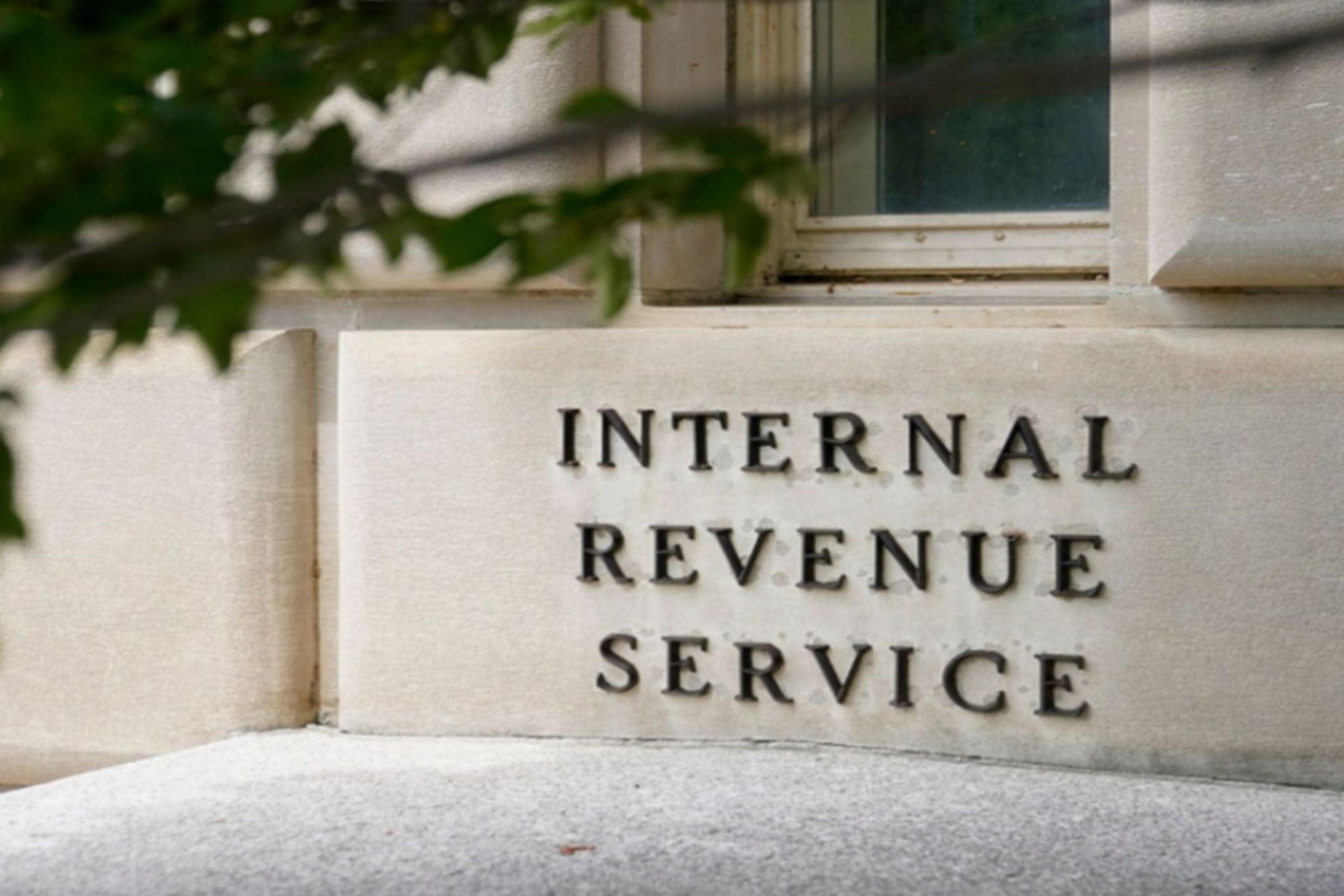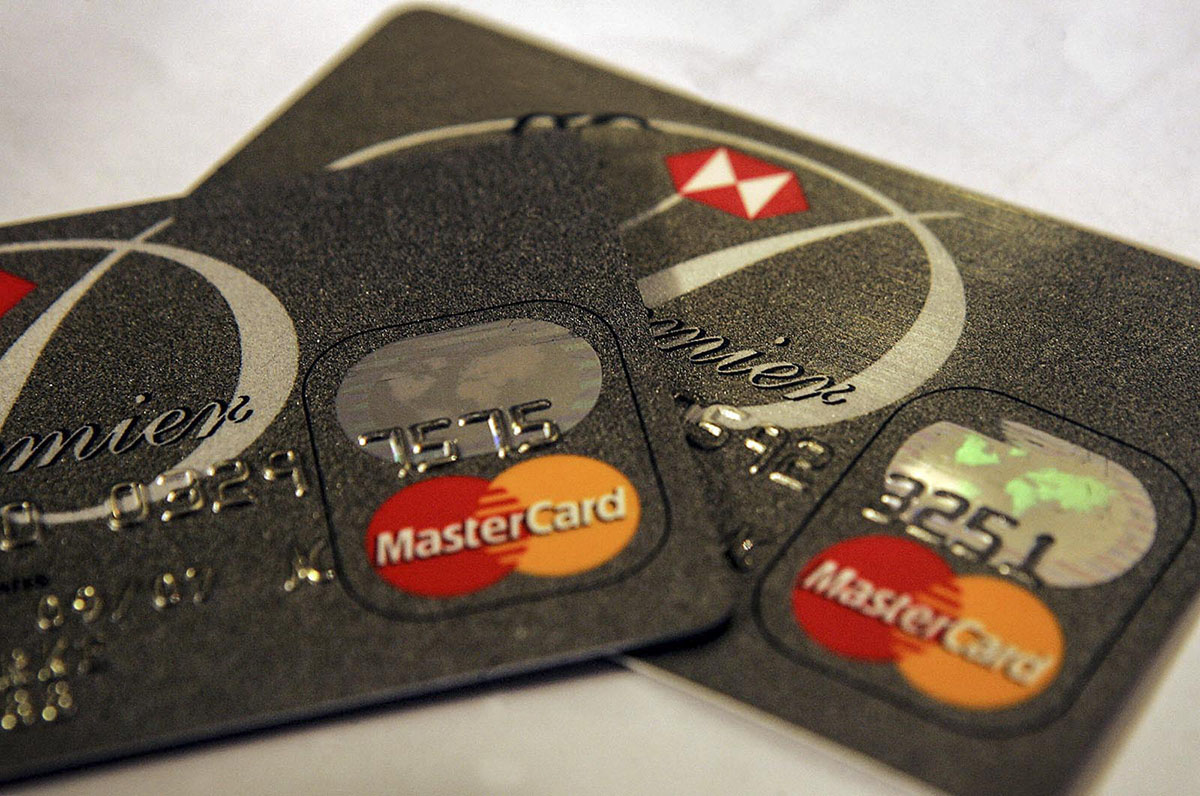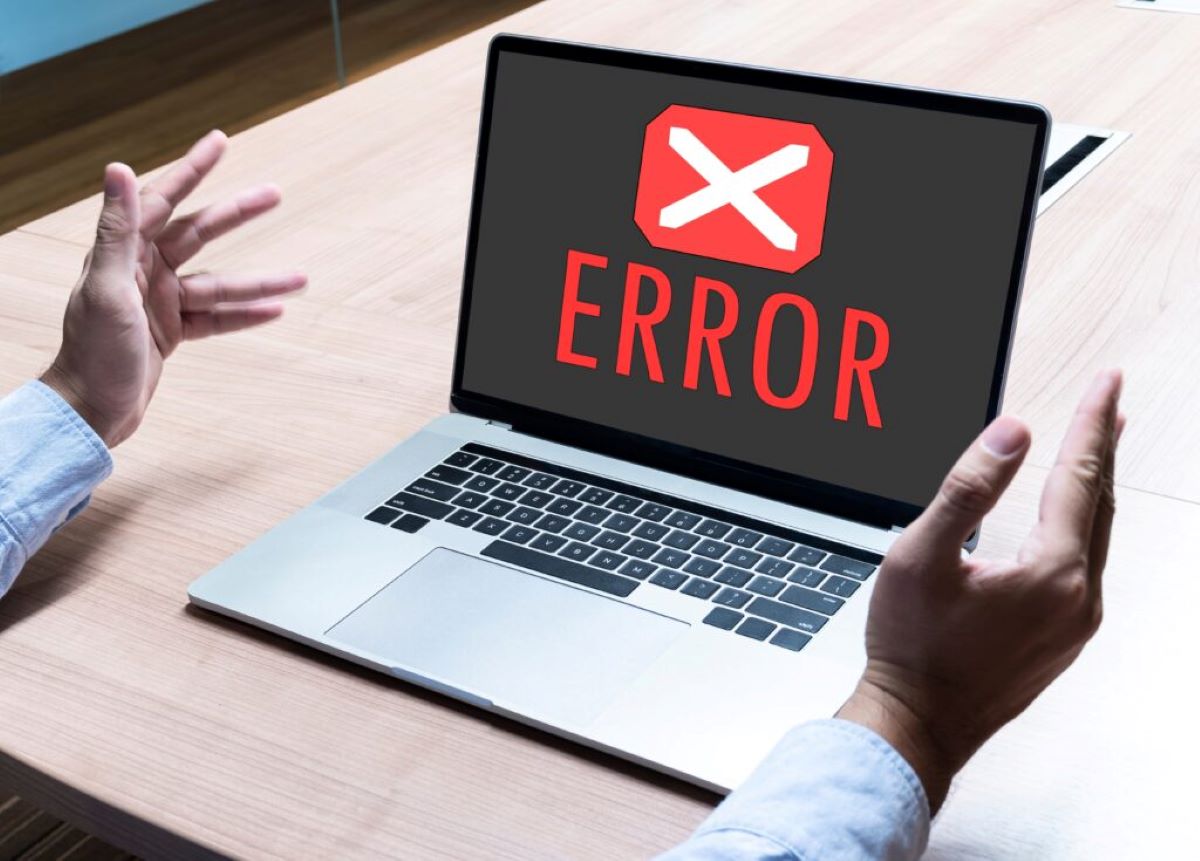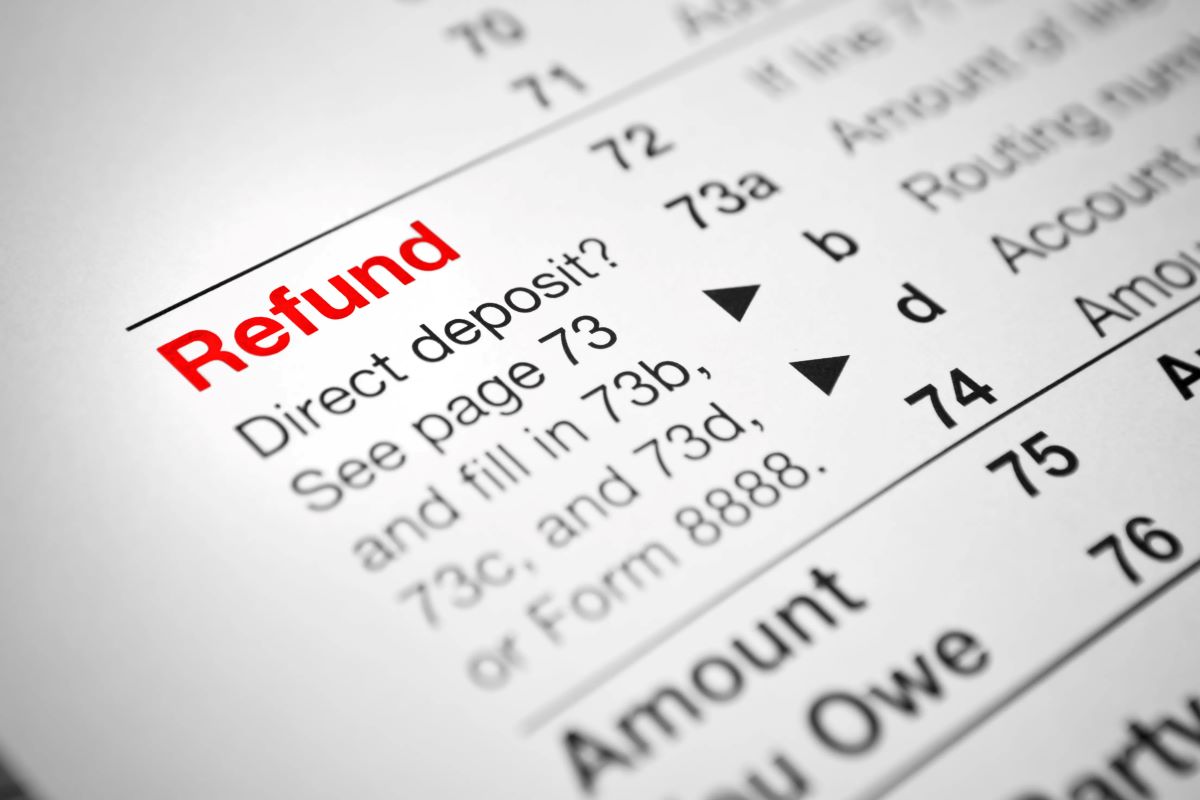

Finance
What Does Postal Code Mean On Credit Card
Published: October 25, 2023
Learn the meaning of postal code on a credit card and its significance in the world of finance. Discover how this small detail contributes to secure transactions and fraud prevention.
(Many of the links in this article redirect to a specific reviewed product. Your purchase of these products through affiliate links helps to generate commission for LiveWell, at no extra cost. Learn more)
Table of Contents
Introduction
When it comes to credit cards, there are various information requirements to ensure the security of transactions and protect consumers. One piece of information that is commonly requested when applying for or using a credit card is the postal code. But what exactly does the postal code mean on a credit card? In this article, we will delve into the significance of postal codes in the realm of credit cards.
A postal code, also known as a ZIP code in the United States, is a numerical code used by postal services to identify specific geographic locations. It helps to ensure that mail and packages are delivered accurately to the intended recipients.
In the context of credit cards, the postal code serves a different purpose. It is used as an additional layer of verification and security during credit card transactions. When making online purchases, for example, you may be prompted to enter the postal code associated with your credit card.
In this article, we will explore the reasons why a postal code is required on a credit card, the measures it helps to enforce, and how it contributes to the prevention of fraud. We will also touch on the Address Verification System (AVS) and discuss the options available when using a different postal code.
So, next time you’re prompted to enter your postal code while using your credit card, you’ll have a better understanding of why it is necessary and how it plays a crucial role in safeguarding your financial transactions.
What is a Postal Code?
A postal code, also known as a ZIP code, is a numerical code used by postal services to efficiently sort and deliver mail to specific geographic locations. It helps to ensure accurate and timely delivery of mail and packages to the correct recipients. Postal codes vary from country to country, and sometimes even within different regions of the same country.
Typically, a postal code consists of a series of numbers or a combination of numbers and letters. These codes serve as a practical way to organize and categorize addresses based on their geographical proximity. By utilizing postal codes, postal workers can easily identify the correct mail sorting centers, routing the mail to the appropriate destinations without confusion or delay.
In many countries, postal codes are required components of addresses, making them an integral part of the mailing system. By including the postal code, senders and recipients can ensure that their mail reaches the intended location swiftly and accurately.
For example, in the United States, a ZIP code consists of five digits, ranging from 0 to 9. However, additional digits are sometimes added to further narrow down the geographic area and enhance delivery efficiency. Similarly, countries like Canada, the United Kingdom, and Australia use alphanumeric postal codes, combining letters and numbers to provide even more precise location information.
Postal codes are invaluable for not only the smooth functioning of postal services but also for various other services that rely on accurate address information. They assist in a wide range of activities, including package tracking, census data collection, demographic analysis, marketing targeting, and emergency services deployment.
Now that we understand the purpose and significance of a postal code, let’s explore why credit cards require this specific information.
Credit Cards and Postal Codes
When it comes to credit cards, postal codes play a crucial role in ensuring the security and accuracy of transactions. When applying for a credit card or using one for online purchases, you are often required to provide your postal code. This information is used to verify your identity and validate your billing address.
The connection between credit cards and postal codes stems from the fact that credit card companies need to authenticate the cardholder’s information during transactions. By requesting the postal code, credit card issuers can ensure that the billing address provided matches the address associated with the card, adding an extra layer of security and minimizing the risk of fraudulent activities.
In addition to verifying the address, the postal code also helps in accurately calculating taxes and shipping costs during online purchases. It enables merchants to determine the correct tax rates based on the location of the buyer, ensuring compliance with regional tax regulations.
Moreover, when it comes to purchases made in brick-and-mortar stores, the use of postal codes can aid in tracking and analyzing consumer behavior and demographics. By analyzing the postal codes of customers, businesses can gain valuable insights into the geographical distribution of their customer base and tailor their marketing strategies accordingly.
It’s important to note that postal codes are not the sole factor in verifying credit card transactions. They are typically used in combination with other security measures, such as the cardholder’s name, the credit card number, and the CVV code (the three-digit code on the back of the card).
Now that we understand why postal codes are required on credit cards, let’s explore in more detail how they contribute to verification purposes and fraud prevention.
Why is a Postal Code Required on a Credit Card?
The requirement of a postal code on a credit card serves two main purposes: verification and fraud prevention. Let’s delve into each of these aspects to understand why a postal code is essential in ensuring the security of credit card transactions.
Verification Purposes: When you provide your postal code while using a credit card, it helps to verify that the billing address you have provided matches the address associated with the card. This verification process adds an extra layer of security and ensures that the person making the transaction is the authorized cardholder. By confirming the billing address through the postal code, credit card issuers can reduce the risk of unauthorized usage and protect customers from fraudulent activities.
Preventing Fraud: The inclusion of a postal code on a credit card plays a significant role in preventing fraud. Since credit cards can be used for both online and offline transactions, the postal code acts as a deterrent against unauthorized usage in various scenarios:
- Online Transactions: When making online purchases, merchants often require the input of the billing postal code. This information is compared with the one on file with the credit card company to ensure that the transaction is legitimate. If a different postal code is entered, it raises red flags and can lead to the transaction being declined or flagged for further verification.
- In-person Transactions: For in-person transactions, such as using a credit card at a physical store or restaurant, the postal code can be requested as part of the verification process. This is especially common when utilizing contactless payments or using chip-based cards. By confirming the postal code, merchants can verify that the card is being used by the authorized cardholder.
The combination of the cardholder’s name, credit card number, CVV code, and postal code creates a multi-layered security system that helps to authenticate transactions and minimize the risk of fraudulent activities. This is particularly important in today’s digital age where cybercrime is prevalent.
Next, we will explore the Address Verification System (AVS) and how it utilizes postal codes to further enhance the security of credit card transactions.
Verification Purposes
One of the primary reasons why a postal code is required on a credit card is for verification purposes. When you provide your postal code while using a credit card, it serves as a crucial piece of information that helps confirm your identity and validate your billing address.
By matching the postal code you provide with the address associated with the credit card, credit card issuers can verify that you are the authorized cardholder. This verification process adds an extra layer of security and ensures that the transaction is legitimate.
When making online purchases, for example, merchants often prompt customers to enter their billing address along with the postal code. This information is compared to the one on file with the credit card company. If there is a mismatch or discrepancy, the transaction may be declined or flagged for further verification.
Additionally, the use of a postal code aids in accurately calculating taxes and shipping costs during online transactions. It allows merchants to determine the correct tax rates based on the location associated with the credit card, ensuring regulatory compliance and providing an accurate breakdown of the total cost to the customer.
Furthermore, the verification process through postal codes helps in preventing address-related errors that could lead to failed or delayed deliveries. By ensuring that the billing address and postal code provided are correct and valid, merchants can minimize the risk of shipping to incorrect or non-existent addresses.
Postal code verification also plays a vital role in reducing instances of friendly fraud. Friendly fraud occurs when a customer falsely claims that they did not authorize the transaction, even though they did. By cross-referencing the postal code with the billing address, credit card issuers can provide evidence to counter such claims, protecting merchants from unwarranted chargebacks.
In summary, the inclusion of a postal code on a credit card is crucial for verification purposes. It allows credit card issuers and merchants to confirm the identity of the cardholder, validate the billing address, ensure accurate tax calculations, and minimize errors and instances of friendly fraud. This verification process enhances the overall security and trustworthiness of credit card transactions.
Preventing Fraud
The requirement of a postal code on a credit card plays a vital role in preventing fraud and protecting both consumers and merchants from unauthorized transactions. By utilizing postal codes as part of the verification process, credit card issuers and merchants can implement effective measures to minimize the risk of fraudulent activities.
When it comes to online transactions, entering the postal code associated with a credit card serves as an additional security measure. It helps to verify that the person making the transaction is the authorized cardholder. If a different postal code is entered or no match is found, it raises suspicion and can lead to the transaction being declined or flagged for further verification.
In-person transactions also benefit from postal code verification. When using a credit card at physical stores or restaurants, merchants may request the cardholder to input their postal code as part of the verification process. This step ensures that the card is being used by the authorized cardholder and adds an extra layer of security.
Postal codes are an essential component of the Address Verification System (AVS), a mechanism employed by credit card processors and payment gateways to verify the validity of a card during transactions. AVS compares the billing address and the postal code provided with the information on file with the credit card issuer. The system then offers a response code indicating the level of match or mismatch between the entered information and the stored data.
By using AVS, merchants are able to make more informed decisions regarding the approval or rejection of transactions. If the postal code or the billing address does not match the cardholder’s information, it raises a red flag and prompts further investigation. This helps to prevent fraudsters from using stolen or counterfeit credit cards for unauthorized purchases.
Furthermore, the use of postal codes in credit card transactions aids in the detection and prevention of identity theft. By verifying the billing address, credit card issuers can identify discrepancies and possible fraudulent activities associated with a particular account. This proactive approach helps to safeguard cardholders’ financial information and provides enhanced security measures.
Overall, the inclusion of a postal code on a credit card contributes significantly to preventing fraud. It acts as a powerful tool in the verification process, adds an extra layer of security for online and in-person transactions, and helps in the detection and prevention of unauthorized activities and identity theft. By utilizing postal codes, credit card issuers and merchants can maintain the integrity and security of their transactions.
Address Verification System (AVS)
The Address Verification System (AVS) is a security measure employed in credit card transactions that utilizes postal codes to validate the accuracy of the billing address provided by the cardholder. It is an essential component of the fraud prevention system used by credit card processors and payment gateways.
When a credit card transaction occurs, AVS compares the numeric portion of the postal code entered by the cardholder with the postal code on file with the credit card issuer. It then provides a response code indicating the level of match or mismatch between the entered information and the stored data.
The AVS response code is typically a combination of letters and numbers that conveys the level of accuracy in the matching process. The response codes can range from “A” for a perfect match to “Z” for a mismatch or lack of data. Each response code corresponds to a specific reason for the match or mismatch.
This system helps merchants and credit card issuers assess the validity and authenticity of a credit card transaction. If the AVS response code indicates a mismatch or lack of data, it raises a red flag, prompting merchants to take additional security measures, such as contacting the cardholder or further verifying the transaction before proceeding.
AVS is an effective tool in preventing fraud by adding an extra layer of verification to credit card transactions. It verifies that the billing address provided by the cardholder matches the address on file, reducing the likelihood of unauthorized transactions or the use of stolen credit card information.
It is important to note that AVS is not foolproof and can sometimes generate false positive or false negative results. Factors such as variations in data entry, formatting differences, or outdated information can impact the accuracy of AVS. In some cases, legitimate transactions may be flagged for further verification due to minor discrepancies in the AVS response code.
Despite these limitations, the Address Verification System remains an essential tool in the fight against credit card fraud. It provides an additional layer of security by leveraging postal codes to verify billing address information, ultimately protecting both cardholders and merchants from unauthorized transactions and potential financial losses.
Using a Different Postal Code
There may be instances where you need to use a different postal code than the one associated with your credit card. This can happen for various reasons, such as when you are traveling, relocating, or have recently moved residences. While it is generally recommended to use the correct postal code for your billing address, there are certain situations where using a different postal code may be acceptable.
When using a different postal code, it is important to consider the following:
- Billing Address Verification: If you are making an online purchase or a transaction that requires AVS, using a different postal code may result in a mismatch in the verification process. This can lead to the transaction being declined or flagged for further verification. It is advisable to use the correct postal code associated with your billing address to ensure a smooth transaction process.
- Temporary Addresses: If you are staying or residing at a temporary address, such as a hotel or a vacation rental, you may need to use the postal code associated with that address for the duration of your stay. However, it is important to update your billing address with your credit card issuer once you return to your permanent address to avoid any potential issues or delays in future transactions.
- Changing Billing Address: If you have permanently moved residences and have a new postal code, it is essential to update your billing address with your credit card issuer. Using a different postal code for an extended period can lead to complications, as transactions may be flagged due to inconsistencies between the billing address and the postal code associated with the card.
- Cross-Border Transactions: When making cross-border transactions, such as purchasing from an international merchant, the postal code requirements may differ. In such cases, it is advisable to consult with the merchant’s policies or contact your credit card issuer to ensure that you are using the appropriate postal code format for the transaction.
It is crucial to remember that using a different postal code on a regular basis or for extended periods may raise concerns and lead to transaction difficulties or potential account restrictions. To maintain a smooth experience and prevent any issues, it is best to use the correct postal code associated with your billing address whenever possible.
If you find yourself needing to use a different postal code temporarily, it is recommended to update your billing address with your credit card issuer as soon as possible to avoid any complications or difficulties with future transactions.
Conclusion
The inclusion of a postal code on a credit card serves as an important security measure to protect both consumers and merchants during transactions. Postal codes play a crucial role in verification and fraud prevention, ensuring that the billing address provided by the cardholder is accurate and validated.
By using the postal code, credit card issuers can verify the identity of the cardholder and minimize the risk of unauthorized transactions. The Address Verification System (AVS) further strengthens this process by cross-referencing the postal code with the billing address on file, providing an additional layer of security.
Postal codes also assist in preventing fraud by acting as a deterrent for cybercriminals. During online and in-person transactions, if a different postal code is entered or there is a mismatch, it raises red flags, prompting merchants to take extra precautions to verify the transaction’s legitimacy.
While it is generally recommended to use the correct postal code associated with your billing address, there may be exceptional cases where using a different postal code is necessary, such as temporary addresses or cross-border transactions. However, it is crucial to ensure timely updates with your credit card issuer to prevent any complications or issues.
In conclusion, the requirement of a postal code on a credit card helps maintain the integrity of credit card transactions, enhances security, and minimizes the risks associated with fraud. By using postal codes as part of the verification process, credit card issuers and merchants can ensure the authenticity and safety of financial transactions in a digital world.














